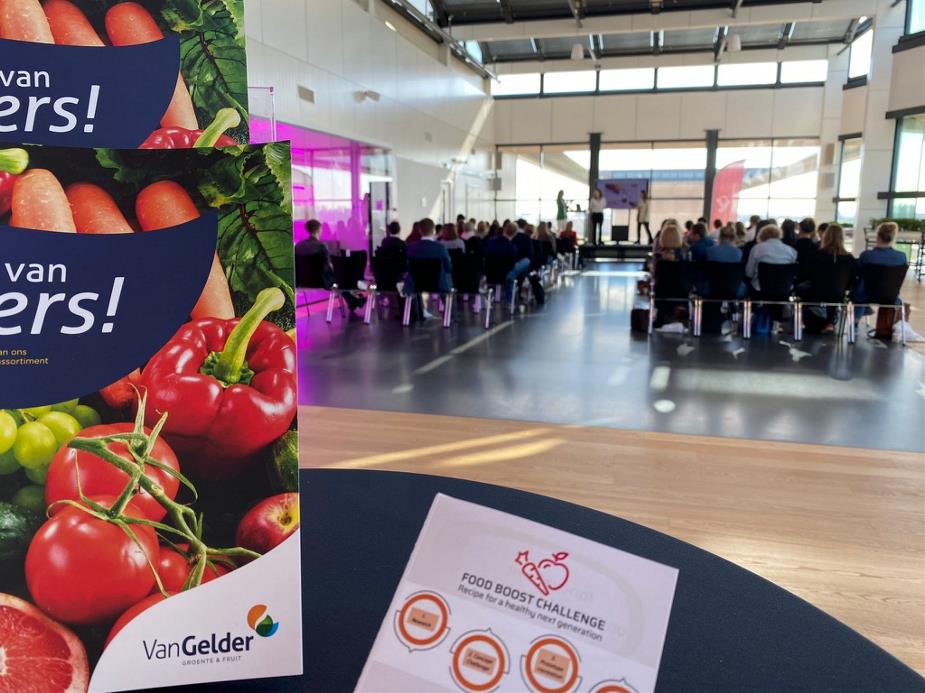Place more emphasis on what students do achieve
23 May 2022
The corona measures have hit students hard in recent years. The impact on their mental health has been great. Nevertheless, it is important not only to spread gloomy information about this group of young people, but also...

The corona measures have hit students hard in recent years. The impact on their mental health has been great. Nevertheless, it is important not only to spread gloomy information about this group of young people, but also to pay attention to what they do achieve. Stories about their flexibility, creativity and perseverance over recent years could actually have a positive effect on their mental health and motivation.
The results of a nationwide survey on the mental health of students appeared at the end of 2021. A selection from the report by the Trimbos Institute and the Municipal Health Service (GGD) is not cheerful. Half of all students feel depressed or anxious, a quarter are world-weary and 80 per cent say they are lonely. There is only one possible conclusion: the measures to combat corona have a very negative side effect. Mental health in this group has been declining in recent years. The study received the attention it deserved: lots of media paid extensive attention to the gloomy figures.
After the corona measures were lifted, the expectation was that students would return to normal. But there was a surprising article in the Parool newspaper last month: students seem to be staying away from the lecture halls. The threshold for taking physical classes again is proving too high for many students. They have lost connection with their studies, and they seem to be 'switched off'. Lecturers are extremely worried about this corona generation: can these students still be motivated?*
There is no doubt about the importance of paying attention to this problem. As a university of applied sciences, we must do all we can to help this group get back on its feet. Fortunately, the government has made financial resources available for a recovery plan within education, and many universities of applied sciences and universities are starting special projects aimed at promoting student wellbeing.
Self-fulfilling prophecy and the Pygmalion effect
But there is also a downside to all this well-intentioned attention. It sends a worrying message to students: “You are a student generation in trouble! Something has to be done to help you get back on your feet!” A message that is not very motivating when you are trying to get back to work with renewed enthusiasm. Constantly reading or hearing that things are not going well for the group you belong to could even work as a self-fulfilling prophecy: the image of who you are and what you are capable of changes because of all the negative news, and you may start behaving like a lost sheep. Alongside the self-fulfilling prophecy is the Pygmalion effect, in which other people also start behaving according to the image created about a specific group. The image of students in trouble can thus lead other people to approach students as a problem population.
The positive story
The beauty of self-fulfilling prophecies and the Pygmalion effect is that they also work in the other direction. Positive expectations of oneself or of a specific group often lead to positive outcomes. Someone who is confident in themselves at a job interview will perform better than someone who enters the interview with little self-confidence. When coaches believe in their team's abilities, team members actually perform better.
This positive phenomenon could be used more often to pull students out of the rut, without detracting from the difficult period they have gone through (or are still going through). There are so many great stories to tell! For example, thousands of students managed to get their senior secondary vocational education and training diplomas, universities of applied sciences or university degrees in 2021 despite the corona pandemic (almost 4000 students at THUAS!). Physical internships have been flexibly transformed into online internships. Students work on innovative projects such as tackling the surplus of clothing (Zuyd University and Fontys), developing ways to get young people to eat more fruit in the Food Boost Challenge (The Hague University of Applied Sciences), and developing solar-powered cars in the famous Solar Challenge (Delft University of Technology).
So, the message about students could just as well be one of flexibility, perseverance and creativity. Hopefully, we will not forget these positive stories. This is good for the mental health of students themselves as well as for the way others view this promising group.
Patricia Bulsing
Patricia Bulsing is a senior lecturer and researcher in Psychology in the Nutrition and Dietetics degree programme. In addition, she supports students who, for whatever reason, get stuck in their studies.
* The Trimbos Institute published a blog in early May with recommendations for getting students back to school. A must-read for everyone working in education! View it here.